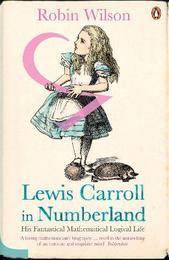
|
Lewis Carroll in Numberland: His Fantastical Mathematical Logical Life
Paperback / softback
Main Details
Description
'A delightful blend of whimsy, satire, endlessly ingenious puns, brain-teasers and unexpected (but very accessible) mathematical insights' Matthew Reisz, The Times Higher Education Supplement Lewis Carroll's books have delighted children and adults for generations, but behind their exuberant fantasy and delightful nonsense was the mind of a brilliant mathematician. Now his forgotten achievements in the world of numbers are brought to light by acclaimed author and mathematician Robin Wilson. Here he explores the curious imagination of a man whose pioneering work at Oxford University included investigations into voting patterns and tennis seeding, who dreamt up numerical conundrums in bed at night and who filled his writings with problems, paradoxes, puzzles and teasing games of logic. Taking us into a world of mock turtles and maps, gryphons and gravity, Lewis Carroll in Numberland reveals the singular mind of a genius. 'A fascinating story ... Wilson could not be better qualified to write a book on Carroll's career in numbers' Jonathan Bate, Sunday Telegraph 'First-rate ... Wilson conjures the spirit of a man who delighted in paradox' Nature
Author Biography
Robin Wilson is the author and editor of 30 books, including the critically acclaimed Four Colours Suffice and is head of the Pure Mathematics Department at the Open University and, in London, Gresham Professor of Geometry, the oldest mathematics chair in England. He is also a fellow in mathematics at Keble College, Oxford.
Reviews'A fascinating story ... Wilson could not be better qualified to write a book on [Carroll's] career in numbers' - Jonathan Bate, Sunday Telegraph 'First-rate ... Wilson conjures the spirit of a man who delighted in paradox' Nature 'A loving mathematician's biography ! revel in the unravelling of an intricate and exquisite mind' Independent 'A delightful blend of whimsy, satire, endlessly ingenious puns, brain-teasers and unexpected (but very accessible) mathematical insights' - Matthew Reisz, The Times Higher Education Supplement
|